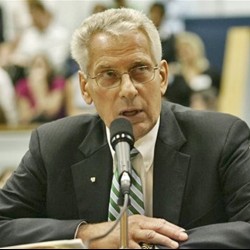“Freedom Play”, an anti-gambling group which tried to repeal a gaming law in Massachusetts, is planning a protest outside the Plainridge Park Casino on Sunday, September 27. Kris Mineau, the Freedom Play member who chaired the “Repeal the Casino Deal” in the November 2014 state election, sent a letter to anti-gambling activists to announce the protest.
The attempts to repeal the gaming law ultimately failed in Massachusetts, but that does not mean the protestors have giving up the cause. Mineau said the Plainridge protest is part of a nationwide effort. Next weekend is National Day of Action Against Predatory Gambling.
Occupy Slots Row
In the letter, Kris Mineau described the protestors’ strategy. They intend to occupy a seat on slots row without actually playing the machines. Mineau wrote, “The action in Massachusetts will be simple but powerful. We enter the casino, sit down at a slot machine, put in our money and then we begin Freedom Playing by occupying the slot machine any way you want except you don’t press the Play button. While we Freedom Play, some of us talk with a friend, some read a book or their smart phone and some even knit. The ideas and fun are almost limitless.”
When the protest is over, member plan to get their money back by hitting refund on the electronic gaming machine. In an interview with The Sun Chronicle, Kris Mineau said Freedom Play wants to raise awareness of the scourge of problem gambling. He said slot machines were chosen because they are the most addictive form of gambling. He added that slots addiction ruins household finances, thus contributing to the ruin of families.
Hopes to Have 25 to 50 People
The leader of Freedom Play did not say how many protestors he expected to attend the protest. He did say if he got 25 to 50 such protectors, “that would be wonderful.”
This is not the only demonstration expected across America on Sunday, September 27. A website for a group called “Stop Predatory Gambling” said it “Through our creative actions we’ll call attention to the needed shift away from government’s dishonest, predatory, and failed experiment with gambling toward a fairer, healthier, and more hopeful vision of America’s future. Our common message: Predatory gambling cheats and harms everyone–even those who don’t gamble.”
Social Costs of Problem Gambling
The group suggests the social and economic costs of problem gambling affect everyone. Problem gamblers eventually need help and counseling, or else they ruin their family’s finances. Either way, the surrounding community must divert resources to helping those who might otherwise live productive lives. Children and spouses are affected, though no blame can be assigned to their actions.
Protest Elsewhere in the USA
Kris Mineau said he knows of demonstrations which are set to take place in at least 3 other U.S. states. In Texas, an old slot machine is set to be smashed by anti-gambling protestors in the state capital of Austin.
Alabamans have a less violent demonstration planned. They will gather in churches across the state to hold prayer vigils for those harmed by problem gambling. In North Carolina, a similar outdoor prayer vigil will be held to remember all those who have been affected negatively by problem gambling.
Losing Battle for Anti-Gaming Groups
The protests are a manifestation of the perennial clash between gaming interests and anti-gambling activists. The anti-gaming groups are facing an uphill battle, because of a massive proliferation in legal gambling over the past generation. 25 years ago, only Nevada and New Jersey had legal brick-and-mortar casinos. Now, over 40 US states have casinos, while most states have their own state lottery and are members of the interstate lotto associations. Increasingly, gambling is accepted.
The three states joining in the protests–Texas, Alabama, and North Carolina–are among the states with the smallest gaming industries. Texas has a state lottery and a racetrack industry, but no casino gambling. Alabama has 3 tribal casinos and a few racetracks, but no state lottery.
Freedom Play sought to have the Massachusetts casino licensing process ended in November 2014. The group succeeded in having a referendum placed on the statewide election ballot. Several prominent figures, including Cardinal O’Malley, supported their anti-gaming stance. But the casino vote went against them, clearing the way for 3 new licenses, including one of the Wynn Casino in Everett and the MGM Casino in Springfield.

